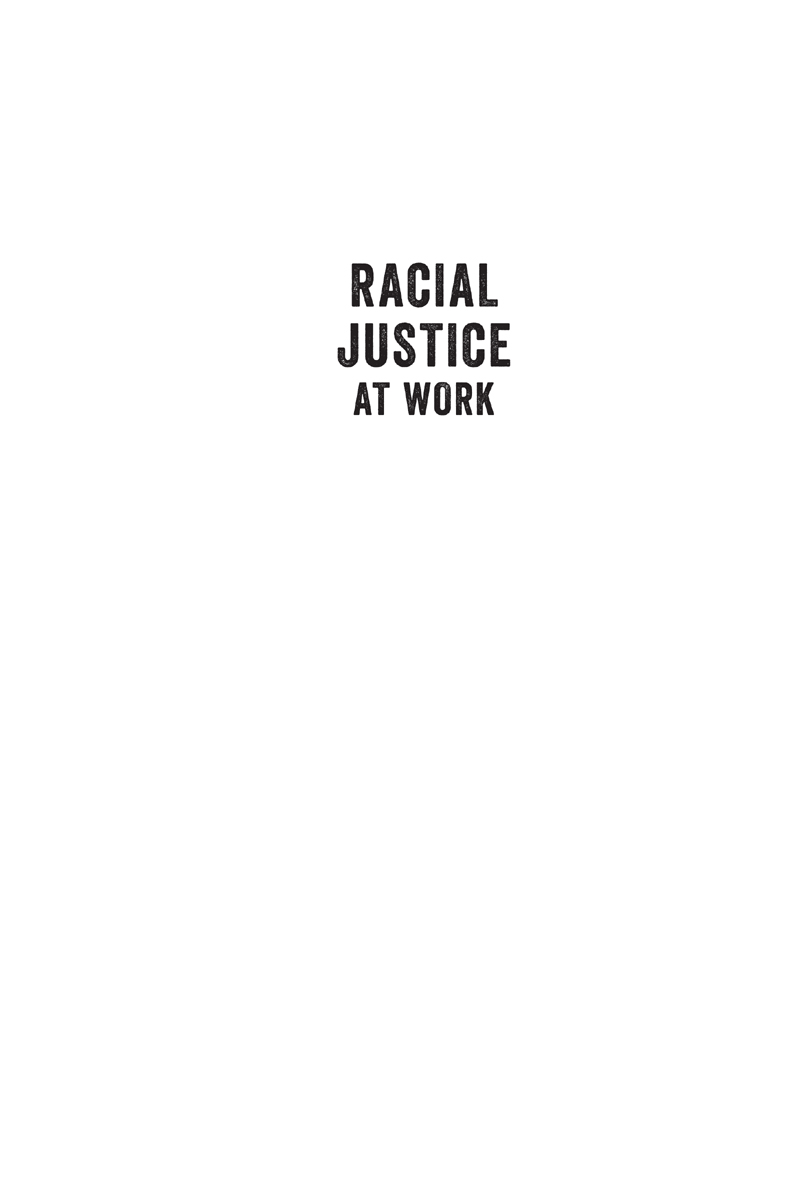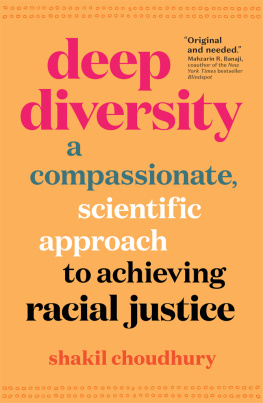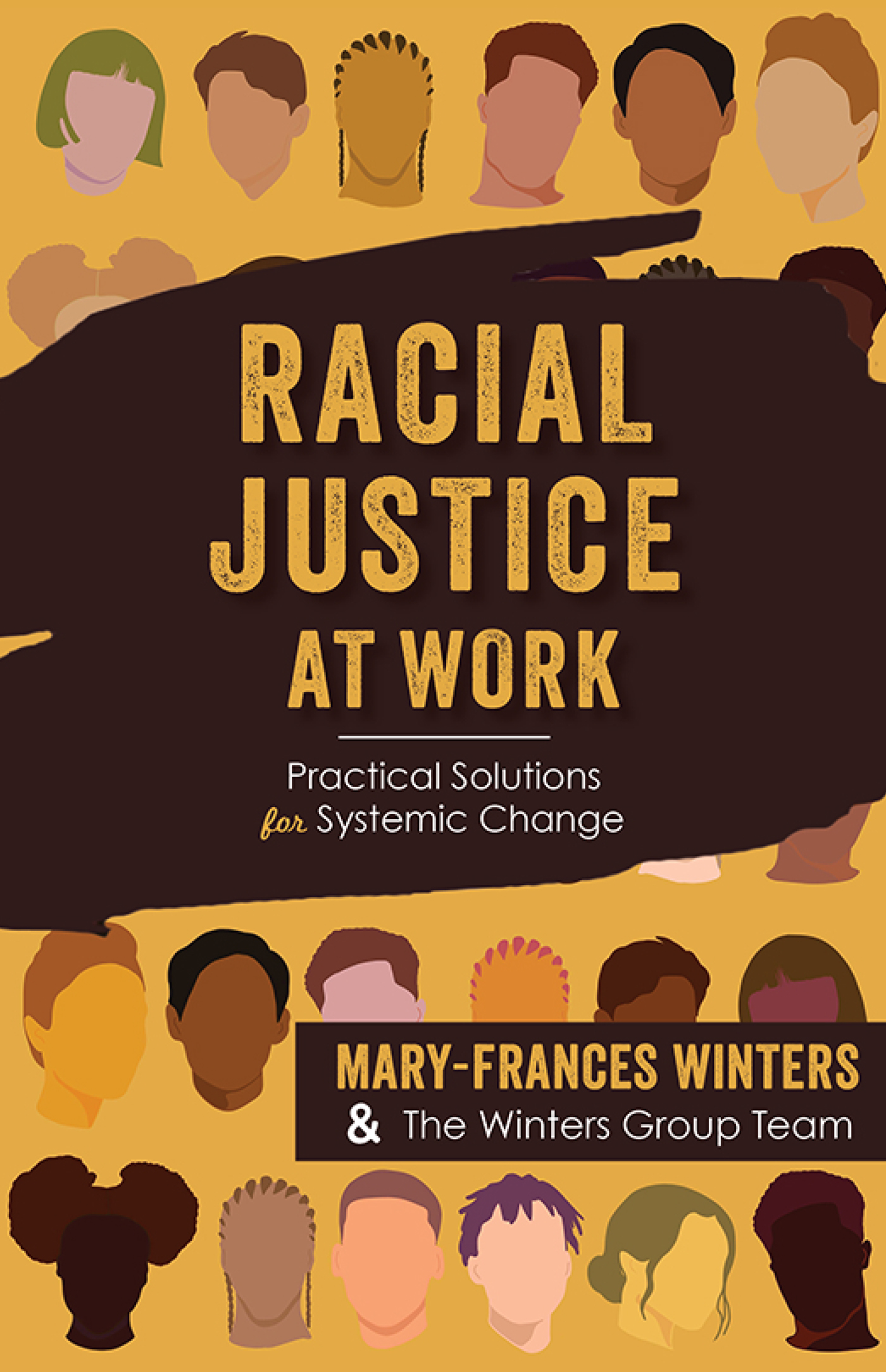Contents
Guide


Racial Justice at Work
Copyright 2023 by The Winters Group, Inc.
All rights reserved. No part of this publication may be reproduced, distributed, or transmitted in any form or by any means, including photocopying, recording, or other electronic or mechanical methods, without the prior written permission of the publisher, except in the case of brief quotations embodied in critical reviews and certain other noncommercial uses permitted by copyright law. For permission requests, write to the publisher, addressed Attention: Permissions Coordinator, at the address below.

| Berrett-Koehler Publishers, Inc.
1333 Broadway, Suite 1000
Oakland, CA 94612-1921
Tel: (510) 817-2277, Fax: (510) 817-2278
www.bkconnection.com |
Ordering information for print editions
Quantity sales. Special discounts are available on quantity purchases by corporations, associations, and others. For details, contact the Special Sales Department at the Berrett-Koehler address above.
Individual sales. Berrett-Koehler publications are available through most bookstores. They can also be ordered directly from Berrett-Koehler: Tel: (800) 929-2929; Fax: (802) 864-7626; www.bkconnection.com
Orders for college textbook/course adoption use. Please contact Berrett-Koehler: Tel: (800) 929-2929; Fax: (802) 864-7626.
Distributed to the U.S. trade and internationally by Penguin Random House Publisher Services.
Berrett-Koehler and the BK logo are registered trademarks of Berrett-Koehler Publishers, Inc.
First Edition
Paperback print edition ISBN 978-1-5230-0362-4
PDF e-book ISBN 978-1-5230-0363-1
IDPF e-book ISBN 978-1-5230-0364-8
Digital audio ISBN 978-1-5230-0365-5
2022-1
Book production: BookMatters.
Cover design: Nita Ybarra. Cover illustration: Krystle Nicholas.
CONTENTS
MARY-FRANCES WINTERS
MARY-FRANCES WINTERS
MARY-FRANCES WINTERS
LEIGH MORRISON
MARY-FRANCES WINTERS
TERRENCE HAREWOOD, PhD
KEVIN A. CARTER
KEVIN A. CARTER
THAMARA SUBRAMANIAN
SCOTT FERRY
KATELYN PETERSON
ROCHELLE YOUNAN-MONTGOMERY
TAMI JACKSON
SCOTT FERRY
MARY-FRANCES WINTERS
THAMARA SUBRAMANIAN
LEIGH MORRISON & TAMI JACKSON
GABRIELLE GAYAGOY GONZALEZ
THAMARA SUBRAMANIAN
LEIGH MORRISON
MAREISHA N. REESE
MEGAN ELLINGHAUSEN
MEGAN LARSON, EdD
MARY-FRANCES WINTERS
MARY-FRANCES WINTERS
PREFACE
Note on terms: Language describing various identity groups is ever-changing. There is no universal agreement and, in our attempt to be respectful of different perspectives, we acknowledge that the terms we have chosen may not resonate with all readers. The term BIPOC (Black, Indigenous, and people of color) is used in the book to recognize that while every identity has had its unique journey with racism, there are shared experiences that we attempt to capture. When not citing language directly from a study or quote, we use Latine to describe individuals who have historically been identified as Hispanic, Latino, or Latinx. Latine, created by LGBTQIA+ Spanish speakers, adopts the letter e from the Spanish language to represent gender neutrality.
We wrote Racial Justice at Work: Practical Solutions for Systemic Change in the midst of intense culture wars in the United States and other parts of the world. There are diametrically opposing views on the meaning of equality, equity, and justiceand who has the right to decide. At this critical juncture in our history of civil and human rights, Racial Justice at Work is an attempt to provide clarity and guidance for leaders in every sector, social justice advocates, and everybody who desires to create equitable workplace systems that truly work for all.
This book invites the reader to reimagine what is possible with chapters from different Winters Group team members who represent a variety of lived experiences, cultural backgrounds, and generations. The book focuses on Black, Indigenous, and people of color (BIPOC) in the workplace. It is a guidebook with actionable solutions for workers everywhere in every industry. It is especially crucial for leaders with decision-making power to create just and fair work environments.
Those who believe justice is not being served for BIPOC will have to be courageous and steadfast. Justice means that we face the ugly truth about systemic racism and the harm caused, and change those systems so that we can move closer to liberty and justice for all. As culture wars intensify, we see attempts through proposed and enacted legislation to deny that systemic racism even exists.
Luckily, amid the attempts to uphold systems of racism are many counterefforts to enhance workplace equity, inclusion, and justice. Since the murder of George Floyd and other Black people in 2020, organizations have made bold commitments to combat systemic racism in the workplace, including aggressive hiring and philanthropic goals. We have seen a surge in organizations filling diversity-related roles. Research by LinkedIn found that the number of people with the title head of diversity more than doubled between 2015 and 2020, and in the sixteen months after the murder of George Floyd, it almost tripled.
It is encouraging that many organizations recognize the need for such roles. Unfortunately, too much of the work continues to be performative (commonly referred to as check the box). According to Russell Reynolds Associates, chief diversity officers have an average tenure of only 1.8 years. There is a great deal of effort put into hiring BIPOC and other programmatic activities such as employee resource groups and mentoring programs, but not enough emphasis on the organizational systems perpetuating inequities. The focus is on fixing the people rather than the systems that harm people. Racial Justice at Work focuses on correcting harmful systems. There are bold organizations, some of which are highlighted in the book, directing their efforts on systemic change. We need more.
The Winters Group has consulted with organizations for over three decades, and we realize that a justice-centered approach is very different from traditional corporate DEI work. Many leaders who signed up to focus on antiracism and social justice in their organizations did not understand the distinction between equity and justice. Many have even added the J to DEI (diversity, equity, and inclusion) and are struggling to operationalize it. There is resistance to the culture change required to center justice and the experiences of those most impacted by racism. This book acknowledges the adverse reaction to change and how to address it. By providing specific, actionable strategies, this book maps the intersection between traditional corporate solutions and those advocated in social justice spaces.
Racial Justice at Work reimagines policies, practices, procedures, and ways of working and being that foster fairness, equity, and opportunity for all. The recommendations in this book are bold and audacious. Some of the solutions may seem unrealistic, improbable, or even outlandish, especially in the backdrop of the culture wars. We invite you to be curious about those solutions you may disagree with and ask yourself why. For those recommendations that you might agree with but think will never happen, try to reimagine what would need to happen to make them a reality. If not what we recommend, then what?












